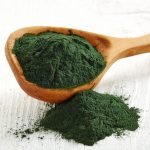Essential Oils Studied for Activity Against Lyme Disease Bacteria
Node Smith, ND
A new study on essential oils has shown that several oils from common medical herbs and spices, including garlic and thyme have strong activity against the bacterium responsible for causing Lyme disease – Borrelia burgdorferi.1 The study was conducted by researchers from John Hopkins Bloomberg School of Public Health, and published last month in the journal, Antibiotics. The research specifically showed that certain essential oils may be useful in cases of persistent Lyme disease, or disease cases that do not resolve after standard antibiotic treatment.
Growing number of Lyme disease cases each year
There is a growing number of Lyme disease cases each year, with current estimates of 300,000 new cases per year in the United States. Doxycycline is the typical antibiotic used to treat Lyme disease, with other alternative antibiotics used in some cases as well. For most cases, antibiotic therapy clears the infection in a few weeks. However, for up to 20 percent of individuals treated, symptoms do not resolve and patients report ongoing fatigue, joint pain and cognitive symptoms. These persistent symptoms have been called “persistent Lyme infection” or “post-treatment Lyme Disease Syndrome” (PTLDS), and can last for months to years.
It is assumed that Borrelia bacteria is able to exist in a stationary phase
The exact nature and cause of this persistent syndrome is unknown. However, it is assumed that the Borrelia bacteria is able to exist in a stationary phase, in which bacterial cells divide incredibly slowly or not at all. This allows the bacteria to evade destruction by common antibiotics. These “persister” cells form naturally under stress conditions such as nutrient starvation.
Some of the essential oils tested performed even better than antibiotics
There has been research into various antibiotic cocktails that would be effective against these “persister” cells. In 2015, research on a three-antibiotic combination–doxycycline, cefoperazone and daptomycin–reliably killed Lyme persister bacteria in lab dish tests. The current research on essential oils showed that the some of the essential oils tested performed even better than antibiotics.
“We found that these essential oils were even better at killing the ‘persister’ forms of Lyme bacteria than standard Lyme antibiotics,” says study senior author Ying Zhang, MD, PhD, professor in the Department of Molecular Microbiology and Immunology at the Bloomberg School.
THE OILS
Zhang and his team found in 2017, that essential oils of oregano, cinnamon bark, clove buds, citronella and wintergreen killed stationary Lyme bacteria more effectively than the antibiotic daptomycin, which is currently considered the champion among antibiotics for Lyme, and is also used to treat MRSA infections.
35 total oils were tested
In this new study, 35 total oils were tested. A total of 10 were found to have significant ability to kill the stationary phase Lyme bacteria cultures. The concentration of the oils used was one part per thousand. At this concentration, 5 oils from the following plants and fruits stood out above the rest:
- Garlic bulbs
- Allspice berries
- Myrrh trees
- Spiked ginger lily blossoms
- May change fruit
These essential oils were able to kill all stationary phase Lyme bacteria in their culture dish successfully in seven days, as well as prevent any new growth for 21 days.
Thyme leaves, cumin seeds, amyris wood and cinnamon bark, also studied and performed well
Oils from thyme leaves, cumin seeds, amyris wood and cinnamon bark also performed well in the study.
 Node Smith, ND, is a naturopathic physician in Portland, OR and associate editor for NDNR. He has been instrumental in maintaining a firm connection to the philosophy and heritage of naturopathic medicine among the next generation of docs. He helped found the first multi-generational experiential retreat, which brings elders, alumni, and students together for a weekend camp-out where naturopathic medicine and medical philosophy are experienced in nature. Four years ago he helped found the non-profit, Association for Naturopathic ReVitalization (ANR), for which he serves as the board chairman. ANR has a mission to inspire health practitioners to embody the naturopathic principles through experiential education. Node also has a firm belief that the next era of naturopathic medicine will see a resurgence of in-patient facilities which use fasting, earthing, hydrotherapy and homeopathy to bring people back from chronic diseases of modern living; he is involved in numerous conversations and projects to bring about this vision.
Node Smith, ND, is a naturopathic physician in Portland, OR and associate editor for NDNR. He has been instrumental in maintaining a firm connection to the philosophy and heritage of naturopathic medicine among the next generation of docs. He helped found the first multi-generational experiential retreat, which brings elders, alumni, and students together for a weekend camp-out where naturopathic medicine and medical philosophy are experienced in nature. Four years ago he helped found the non-profit, Association for Naturopathic ReVitalization (ANR), for which he serves as the board chairman. ANR has a mission to inspire health practitioners to embody the naturopathic principles through experiential education. Node also has a firm belief that the next era of naturopathic medicine will see a resurgence of in-patient facilities which use fasting, earthing, hydrotherapy and homeopathy to bring people back from chronic diseases of modern living; he is involved in numerous conversations and projects to bring about this vision.









